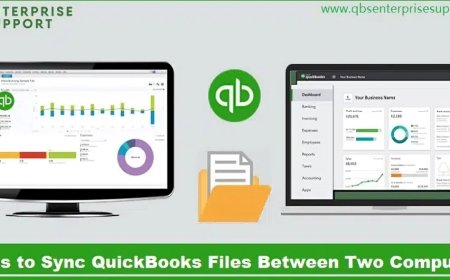How Uber Clone App Development Can Help You Compete in the On-Demand Market
Discover how Uber clone app development empowers startups and enterprises to thrive in the competitive on-demand economy with faster launch, scale, and innovation.

The on-demand economy is thriving, with ride-hailing being one of its most dominant sectors. Uber set the standard for seamless transportation solutions, and today, countless businesses want to emulate that success. But building a platform like Uber from scratch requires significant time, resources, and expertise. Thats whereUber clone app development comes inoffering a fast, scalable, and cost-effective way to launch a competitive ride-hailing business.
In this blog, we explore how an Uber clone app can position your business for growth, competitiveness, and long-term sustainability in the on-demand transportation market.
The On-Demand Ride-Hailing Boom
Why the Market Is Ripe
The global ride-hailing market is projected to surpass $200 billion by 2030. Consumers increasingly prefer mobile-based booking systems for convenience, real-time tracking, and digital payments. From urban professionals to tourists, people want reliable and fast transportation.
This surge in demand presents a huge opportunity for new players who can offer localized, efficient, and user-friendly solutions.
Challenges Faced by New Entrants
- High initial development cost
- Long time-to-market
- Complex backend architecture
- Competition with global players like Uber, Bolt, and Lyft
An Uber clone app helps tackle these challenges head-on.
What Is an Uber Clone App?
An Uber clone app is a pre-built, white-label ride-hailing solution modeled after the core features of Uber. It includes:
- Rider app
- Driver app
- Admin panel
- Dispatcher dashboard
These components come with essential features like real-time tracking, fare estimation, digital payments, ride history, and multi-language support. Entrepreneurs can fully brand and customize the app to fit their business identity and market.
Key Benefits of Using an Uber Clone App
1. Faster Time to Market
Developing a ride-hailing app from scratch can take 1218 months. An Uber clone drastically reduces this to 24 weeks, allowing you to launch and test faster.
2. Cost Efficiency
Custom app development can cost anywhere from $50,000 to $250,000+. Uber clone development offers a fraction of that cost while maintaining robust functionality.
3. Fully Customizable
You can tailor:
- UI/UX design
- Features (e.g., carpooling, scheduling)
- Payment gateways
- Promo codes and loyalty programs
- Service areas and ride categories
This ensures that your app aligns with local market needs and brand identity.
4. Scalable Infrastructure
Most Uber clone solutions are cloud-based and built with scalable architecture. Whether you're starting in one city or expanding across regions, the platform grows with you.
5. Ready for Real-Time Operations
Key features like GPS tracking, driver assignment algorithms, in-app chat, and push notifications are already integrated to ensure a smooth ride-booking experience.
Features That Help You Compete Effectively
Rider App Features
- Easy registration and login
- Fare estimator
- Real-time ride tracking
- Multiple payment options
- Rating and reviews
Driver App Features
- Route optimization
- Real-time ride requests
- Earnings dashboard
- Trip history and analytics
Admin Panel Capabilities
- Manage riders and drivers
- Set commission rates
- Approve/decline drivers
- View analytics and performance reports
- Launch city-specific promos or price surges
These built-in features allow you to focus on operations and growth instead of building from scratch.
Market Adaptability and Localization
An Uber clone app is built to be flexible and adaptable. Whether you're operating in a Tier-1 city or a small town, the system allows for localized control:
- Multi-language interface for regional users
- Multi-currency support
- Zone-based pricing and availability
- Region-specific tax rules
- Driver onboarding based on local regulations
With the right adjustments, you can deliver a personalized user experience that builds trust and loyalty.
Monetization Strategies
Uber clone apps allow you to implement multiple revenue models:
- Commission-based: Earn a percentage on each completed ride
- Subscription model: Offer drivers a weekly/monthly plan to use your platform
- Surge pricing: Boost fares during peak hours
- Ad placements: In-app ads for nearby businesses
- Premium services: Add-ons like executive cars, female-only rides, or eco-friendly transport
This multi-channel approach ensures steady revenue and profitability.
Read More: How Uber Clone App Development is Transforming On-Demand Mobility
Real-Life Success Examples
Local Ride-Hailing Startup in East Africa
A startup used an Uber clone to offer affordable rides in urban Kenya. With local language support and mobile money integration, they gained 20,000+ users in 6 months.
Regional Expansion in South Asia
An entrepreneur launched in one Indian city with bike taxis and expanded to 5 cities within a year, thanks to the scalable architecture of their Uber clone.
Niche Ride Services in the Middle East
A startup in Dubai launched a women-only ride service using a customized Uber clone. With tailored features and targeted marketing, it attracted a loyal user base.
Preparing for a Competitive Launch
To succeed with your Uber clone app, you need more than just the technology:
Choose a Niche
Focus on a specific segment such as:
- Corporate rides
- Intercity travel
- Women-only rides
- Airport pickups
- EV-based rideshare
Partner with a Reliable Tech Provider
Work with a clone app development company that offers:
- Post-launch support
- Custom feature development
- Cloud deployment
- Security and data protection
Build a Local Marketing Strategy
- Use local influencers
- Partner with regional businesses
- Launch referral programs
- Offer first-ride discounts
Conclusion
In the fast-paced on-demand market, time, tech, and adaptability matter. Uber clone app development gives you a strategic advantage by reducing costs, accelerating time to market, and offering a fully functional, customizable solution. With the right execution, it becomes your launchpad into the ride-hailing businessempowering you to compete confidently with global and local players.
To launch efficiently and scale confidently, partner with a trusted clone app development company that can turn your vision into a market-ready product.
FAQs
What is the cost of developing an Uber clone app?
It varies by features, design, and provider, but it typically costs 70% less than building from scratch.
Can I customize the Uber clone for a specific niche?
Yes, features, design, and workflows can all be tailored to your business model.
Is it suitable for small cities or rural markets?
Absolutely. With zoning and localized pricing, Uber clone apps work well in any demographic region.
How long does it take to launch?
Most ready-made solutions can go live within 24 weeks, depending on your customization needs.
Can I add multiple ride categories?
Yes, you can offer options like bike taxis, executive rides, EV rides, and more, all within one platform.





































